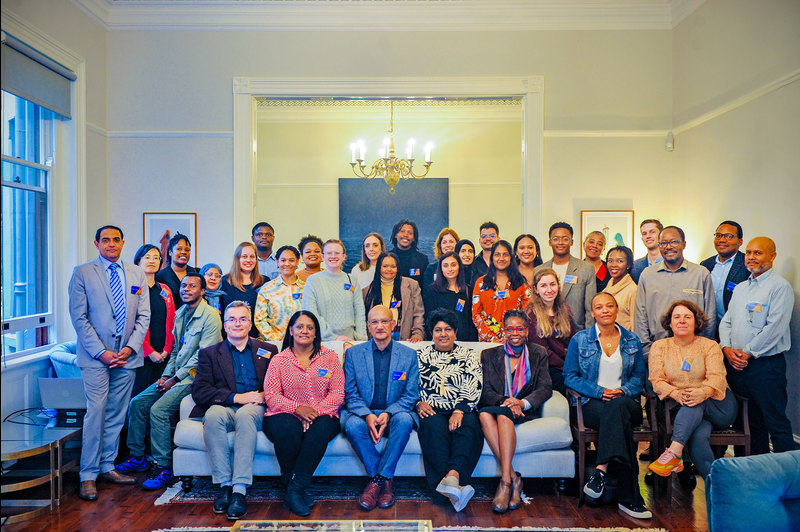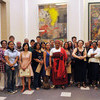NAPP honours successful participants of 2023
29 November 2023 | Story Farah Khalfe. Photos Lerato Maduna. Read time 3 min.
Convened by Associate Professor Kasturi Behari-Leak from the Centre for Higher Education Development (CHED), the New Academic Practitioners’ Programme (NAPP) aims to nurture the professional development of academics with no more than five years’ experience teaching in a higher education environment.
Since 2004, NAPP has functioned as an incubation platform for new lecturers and educators at the University of Cape Town (UCT). This is achieved through a combination of theoretical and practical methods. Its key areas of focus include teaching, learning and assessment, research, management, administration, and community outreach.
It also hones in on a number of ad hominem procedures such the UCT Assessment Policy, the Teaching and Learning Charter, the transformation policy; research and career planning strategies, and technology-enhanced teaching opportunities, among others.
In essence, the NAPP seeks to integrate new academics into the cultural and academic ethos of UCT, ensuring they become productive, valuable, and thriving members of the UCT community.
“The aim is to celebrate what [new academics] bring to the table and cultivating and enhancing that through the NAPP.”
The NAPP structure includes two cohorts of 20 participants each, per semester. The programme consists of a two-and-a-half-day residential retreat complemented by three full-day teaching, learning, assessment, and curriculum workshops spread out over a semester.
To close off this year’s rendition, a cocktail event was held on Monday, 20 November. It was attended by Vice Chancellor interim Emeritus Professor Daya Reddy, the NAPP cohort of 2023, deans of faculties, and UCT executives, among others.
Gaining insight
At the event, attendees had the opportunity to gain insight into the cohort’s work, as well as special projects they have been involved with at UCT since being a part of the programme. In 2023, 37 new academics completed the programme.
“The aim is to celebrate what [new academics] bring to the table and cultivating and enhancing that through the NAPP. It’s a fantastic chance for academics to network across faculties at UCT. Through communication and dialogue with one another regarding their work, we have been able to bring back a sense of community amongst faculty members,” said Emeritus Professor Reddy.
Behari-Leak emphasised NAPP’s aim to challenge the notion of ‘newness’ – recognising that while new academics might be new to higher education, they are in fact experts in their field and are not new to their respective disciplines and should be treated as such.
To this end, academics are encouraged to identify a teaching project to explore as part of a critical reflection journey throughout the programme.
“We ask each academic to embark on a teaching and learning project at the beginning of NAPP in February. By the time they finish the programme, they have to show us what they’ve done with the project. They identify a topic and how it’s embedded in their classrooms; something that they can actually bring to the students to make a difference,” Behari-Leak said.
 This work is licensed under a Creative Commons Attribution-NoDerivatives 4.0 International License.
This work is licensed under a Creative Commons Attribution-NoDerivatives 4.0 International License.
Please view the republishing articles page for more information.
Centre for Higher Education Development
In the news


.jpg)







































































































































































































































